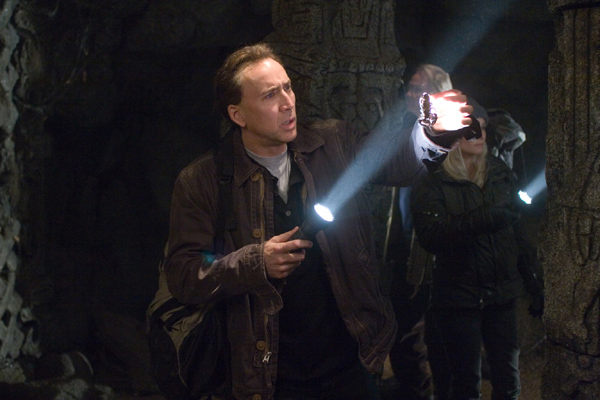 American homeowners move every five to seven years on average. It’s not too often, however, that those movers are famous celebrities. In an exclusive fake interview, Nicolas Cage announced major news this March: he’s moving to Rochester, NY, ASAP to get away from all of those notorious PHONIES in Los Angeles!
American homeowners move every five to seven years on average. It’s not too often, however, that those movers are famous celebrities. In an exclusive fake interview, Nicolas Cage announced major news this March: he’s moving to Rochester, NY, ASAP to get away from all of those notorious PHONIES in Los Angeles!
“I’m just tired of the L.A. lifestyle and the fake people, honestly, and I feel like, at this point in my life, I’d rather just live in a place full of real, genuine people. I’ve been to Rochester a few times over the years and the people there are real… they’re genuine, and yeah every community has its problems but the people there are good, decent people and they care about their community. Those are the things I find most important in deciding where to live. I might hang out somewhere further south during the winter though!” Cage said with a laugh. “I’m not retiring, I’m just looking for a change in life and I think I’ve found that in Rochester.”
Meanwhile, residents of Providence, RI, and Vail, AZ, were either disappointed or relieved to learn that Justin Bieber was not really building a mansion in the area. Nor will the non-existent “The Notebook 2” be filming in Boise, ID, or Champaign, IL, simultaneously, this summer.
Other hoax headlines from the past month included:
- Leonardo DiCaprio to Buy Home in Iowa City, IA
- Scarlett Johansson Moving to Lakeside, FL
- Robert Downey Jr Moving to Albany, NY
- Jennifer Lawrence Moving to Lincoln, NE
- Samuel L. Jackson Moving to Fort Wayne, TX
Every year about 45 million Americans, celebrities included, decide to pack up and move to a new city. Unfortunately for gullible Americans everywhere, Nicolas Cage, Scarlett Johansson, and Demi Lovato are not really moving to their beloved hometown to get away from “the fake LA lifestyle.”
Although many people assumed these articles were an early April Fool’s Day prank, they’re actually part of a recycled hoax that makes the round online every few months. Just like the too-weird-to-be-true articles that get widely shared on Facebook, they’re phony articles churned out to generate advertising revenue.
The websites that run these stories simply call themselves a “Fantasy News Website” to avoid any legal issues, then reap the viral whirlwind that comes from over-eager Internet users.
Remember: just because something is on the Web doesn’t make it true.



No Comment